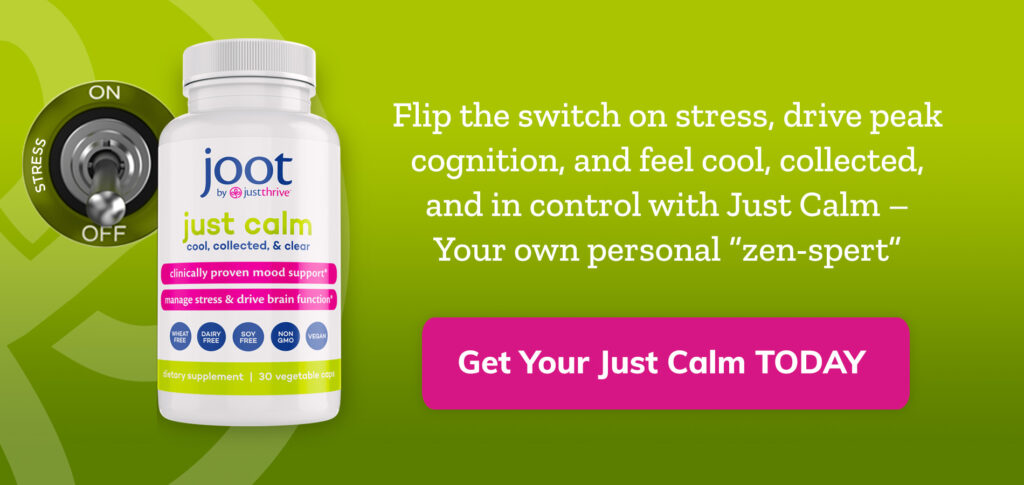Table of Contents[Hide][Show]
An alert from your favorite news site… yet another text in that group chat… the irresistible urge to scroll through your social media feed…
If you’re like most people, your electronics are constantly asking for your attention—and you usually give in, even if it’s “just” a few minutes. After all, who can resist liking a cute cat video posted by their favorite neighbor?
But you might not realize just how much time you’re spending each day on your favorite apps and websites, or how it’s affecting your health.
Let’s take a look at how your time online could be hurting you and how a digital detox can help you feel better mentally and physically.
What Is a Digital Detox?
A digital detox is simply a period of time during which you choose to cut down or completely eliminate the amount of time you spend on electronics.
For the most part, people doing a digital detox will avoid most “screentime,” including:
- Emails
- Social media
- Television
- Texts
- Video games
- Smartphones, tablets, laptops, and computers
Sounds simple enough, right?
But not so fast! Here are a few jaw-dropping stats on electronics usage.
- The average American checks their phone a whopping 352 times per day.
- 47% of Americans feel addicted to their phones.
- The average cell phone user spends 2 hours and 51 minutes on their phone each day.
- Over 20% of all car accidents are caused by cell phone usage.
And that’s just cell phones. You might also be spending “screen time” with a tablet, laptop, or other devices.
How does your electronics usage compare? Let’s look at some signs that you might need a digital detox.
Related
5 Mindfulness Exercises for Kids and Parents to Enjoy Together
Learn what mindfulness is, why its important for kids, and get five mindfulness exercises for kids that will help you get started.
Why Do You Need a Digital Detox?
For many people, scrolling mindlessly through social media sites is simply another way of unwinding in the evening or taking a well-deserved break during the day.
And since you don’t necessarily see the negative impact of all that time online, you might not even realize how harmful it is.
Here are just a few ways that spending too much time connected can hurt your mental, physical, and emotional health:
- Anxiety
- Depression
- Lack of exercise
- Low self-esteem
- Poor self-image
- Poor time management
- Reduced work ethic
- Trouble sleeping
- Unhealthy eating habits
- Weight gain
Of course, any of those can be caused by other behaviors, habits, or even medical issues. But if you know that you spend a large amount of your time online, then there is likely a connection.
The Benefits of a Digital Detox
Almost everyone can benefit from a digital detox, and it will surely leave you feeling better.
Here are some of the most common positive results you’ll see when you unplug.
Improve Your Mood
Scrolling through social media for connection with family and friends can have the exact opposite effect, especially if you see them “living their best lives” without you.
It can actually make you miss them more, feel less connected, and even feel jealous if you see them enjoying time with others.
A digital detox can help you take your relationships offline and into the real world, connecting with family and friends in person. Time spent with the people you love is another way to help you feel less stressed and more at peace.
Reduce Stress, Anxiety, and Depression
Taking a break from social media can significantly reduce stress, anxiety, and depression.
As much fun as it is to check out social media, it can be difficult to avoid comparing yourself to the influencers, models, and celebrities you see online. Seeing their seemingly perfect lives online can make you feel inadequate by comparison, which can lower your self-esteem.
Taking a break from social media can help do away with those negative comparisons you’re making and boost your self-image and mood.
Build Better Relationships
If you’re addicted to your phone, chances are it’s affecting your romantic relationship… even if you hadn’t noticed it.
In fact, 71% of cell phone users admit to spending more time with their phones than with their partners, with well over half of them admitting to spending 3-4 hours more on their phones daily. Ouch!
Without your phone as a distraction, you can get to what really matters: your family and friends.
Get Healthier
We’ve talked a lot about the emotional and mental benefits of a digital detox, but reducing screen time is good for your physical health, too.
Too much time online is associated with:
- Eye issues, including dry eyes and blurry vision
- Headaches
- “Tech neck” —sore neck from looking down at your phone
Decreasing electronic usage can help alleviate those issues.
Spending less time online will also free up your time for other activities, including exercise or time outdoors, which will also benefit your physical health.
Related
8 Ways Nature Boosts Your Total Health And Wellness
We’ve all experienced the calming effect of nature. You get out into the woods or the desert, find a quiet moment, and suddenly you feel lighter and refreshed. But, most of us don’t always have a forest right outside the door or the time to go for a hike. Let’s explore other ways to experience …
Boost Your Productivity
You might start your workday with amazing intentions. But a quick social media check, a few texts with your buddies, a “quick” break to play your favorite game, and suddenly your whole morning has flown by.
Sound familiar? 30% of Americans say that their cell phone usage has affected their productivity.
Of course, there are apps that might actually help your productivity… if you’re disciplined enough to stick to using those only!
Sleep Better
Want to get better zzzz’s? Try a digital detox in the evenings.
When your body senses that it’s almost bedtime, your brain releases melatonin, the sleep hormone.
Unfortunately, the blue light from your screens disrupts melatonin production. This leaves you feeling alert instead of drowsy, which makes it difficult to fall asleep and reduces the quality of your sleep.
How to Do a Digital Detox
Ready to take a break, even a temporary one, from your devices?
Here’s an easy guide to doing a digital detox.
1. Set a Time Limit
How much time you choose for your digital detox is completely up to you.
You can choose a regularly set time period, such as “Hands-Free Sundays.” Or, you might choose a longer period of time, such as a digital detox “retreat” during the holidays or on your vacation.
If you’re used to having your phone with you at all times, you might start off more slowly. Try setting a timer for a limited amount of time, say 30 minutes a day, to begin.
2. Silence Unnecessary Notifications
Remember those social media “pings” we talked about earlier? It’s hard not to tap on them to see whether it’s a comment from your favorite aunt or a new story posted by your best friend.
If that’s the case, you’d probably benefit from turning off your notifications altogether, to eliminate the temptation of checking “just for a second” to see what’s happening online.
But before you do, here’s a surprising statistic to keep in mind: silencing notifications can actually result in more time spent looking at your phone!
Why’s that?
Because instead of waiting for a notification to tell you to check your phone, you’re constantly checking your phone to see whether you missed a silenced notification. This is especially true if you have high anxiety or FOMO (Fear Of Missing Out). If that describes you, silence your notifications and put your phone out of reach.
Of course, if you’re expecting an important call or need to stay connected to work, you can always set up unique notification sounds so that you know just who is trying to contact you and silence the others.
3. Track Your Usage
Give yourself the tools you need to succeed with your digital detox!
If it’s impossible to unplug completely, try at least reducing your electronics usage. There are apps that will track the amount of time you spend online, so you can accurately monitor your usage and make sure you don’t go past whatever daily time limit you choose.
You can also choose apps that will “lock down” social media after the amount of time you designate. You can still use your phone, but you’ll avoid hours spent on mindless scrolling.
4. Create Healthy Boundaries
Of course, it’s not always possible to stay away from your phone completely, especially if your job or family situation requires you to answer messages quickly.
In this case, you can set boundaries and times during which you limit your electronics usage. Here are some ideas to get you started:
- When you first wake up: Use that time to journal, stretch, go for a walk, or simply enjoy a quiet cup of coffee.
- Before bed: Disconnect an hour or two before bed to maintain your melatonin production and natural sleep cycle.
- At the gym: You deserve some “me time” to focus on your health.
- During meals: Practicing mindful eating, a form of meditation. Stay aware of your body’s cues, so you know when you’re full and can avoid overeating.
- When you’re with your loved ones: Be fully present with them, connect, and enjoy their company.
5. Get Your Kids Involved
Adults aren’t the only ones addicted to their electronics.
While most children don’t use laptops much, other than for school, one recent study showed that almost 66% of children spend at least four hours per day on their phones.
And almost every parent knows the frustration of trying to have a conversation with a child who’s distracted by a screen.
Get your kids on board with screen-free time by offering a digital detox challenge; challenge them to see who can stay electronics-free longer, the adults or the kids.
You can also set times of the day (mealtimes, afternoons from 4–6, or whatever works for your family) or zones (the bedroom, the dining room table) and designate them to be phone-free for the whole family.
Final Thoughts
Let’s face it: our devices aren’t going anywhere. And they shouldn’t. There are plenty of benefits to having cell phones, tablets, and all the rest of your electronics… when they’re used correctly and in moderation.
But if you realize that you’ve been spending a bit too much time online—or even if you haven’t realized it—it may be time for a digital detox.
You’ll be surprised at how much better your mind and body will feel when you spend less of your time online and more of it enjoying your real life!
You May Also Like…






